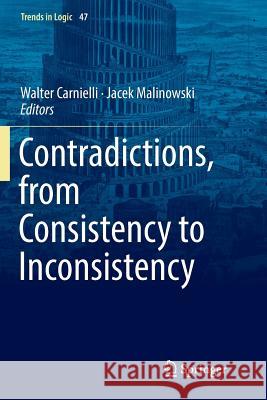Contradictions, from Consistency to Inconsistency » książka
topmenu
Contradictions, from Consistency to Inconsistency
ISBN-13: 9783030075347 / Angielski / Miękka / 2019 / 322 str.
Kategorie BISAC:
Wydawca:
Springer
Seria wydawnicza:
Język:
Angielski
ISBN-13:
9783030075347
Rok wydania:
2019
Dostępne języki:
Numer serii:
000082112
Ilość stron:
322
Waga:
0.46 kg
Wymiary:
23.39 x 15.6 x 1.75
Oprawa:
Miękka
Dodatkowe informacje:
Wydanie ilustrowane











